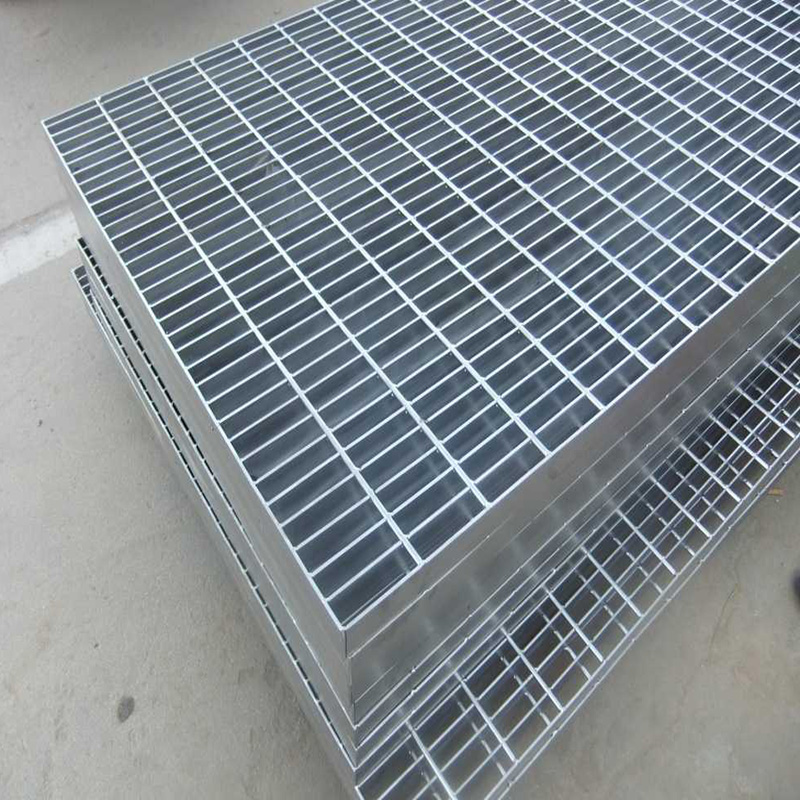-
+86 15030157877
-
sales@galvanizedmetalmesh.com
Sep . 28, 2024 13:03 Back to list
Wholesale Angle Steel for Structural Applications and Construction Projects
Understanding Wholesale Angle Steel A Comprehensive Guide
Angle steel, also known as angle iron, is a versatile structural material commonly used in construction and various engineering applications. With its distinct L-shaped cross-section, angle steel offers superior strength, stability, and versatility, making it an essential component in many industrial and commercial projects. This article explores wholesale angle steel, its properties, applications, benefits, and considerations when purchasing wholesale steel products.
What is Angle Steel?
Angle steel is manufactured from steel and comes in various sizes and thicknesses. It is available in equal angles (where both legs are of equal length) and unequal angles (where the legs are of different lengths). The production process involves hot-rolling steel billets or cold-forming steel sheets, ensuring that it meets the required specifications for strength and durability.
Properties of Angle Steel
1. Strength and Durability Angle steel is known for its robust nature. Its structural integrity allows it to be used in load-bearing applications, making it an ideal choice for frameworks in buildings, bridges, and other structures.
2. Corrosion Resistance Many manufacturers offer angle steel with protective coatings (such as galvanized steel) to enhance its resistance against corrosion and environmental factors. This is crucial in outdoor applications, extending the lifespan of structures.
3. Versatility Due to its shape and strength, angle steel can be used in numerous applications, including frames for machinery, beams for buildings, brackets, supports, and more.
4. Ease of Fabrication Angle steel is easily weldable and can be cut to required lengths, allowing for flexibility in construction and fabrication processes.
Applications of Angle Steel
Angle steel is employed across various industries due to its functional properties
1. Construction It serves as a critical component in the construction of buildings, warehouses, and commercial structures, forming the skeletal frame.
2. Manufacturing Angle steel is commonly used in manufacturing equipment and machinery, providing the necessary support structures for heavy machinery.
3. Automotive In the automotive industry, angle steel is utilized for fabricating frames and supports for vehicles.
wholesale angle steel

5. Furniture and Interior Design Its aesthetic appeal and strength have made it a popular choice in contemporary furniture design and architectural features.
Benefits of Purchasing Wholesale Angle Steel
1. Cost-Effectiveness Buying angle steel in bulk often comes at a lower price per unit, reducing overall project costs and allowing businesses to allocate resources more efficiently.
2. Consistent Supply Wholesalers can provide a consistent supply of angle steel, ensuring that projects stay on schedule without delays associated with sourcing materials.
3. Variety Wholesale suppliers typically offer a wide range of angle steel sizes, lengths, and specifications, providing customers with multiple options to meet their specific needs.
4. Quality Assurance Reputable wholesalers often adhere to industry standards and provide certification for their products, ensuring that customers receive high-quality angle steel.
5. Customization Many wholesale suppliers offer customizable options, allowing businesses to order angle steel tailored to their project specifications, including special coatings and finishes.
Considerations When Purchasing Wholesale Angle Steel
1. Supplier Reputation Research potential suppliers carefully. Look for reviews, testimonials, and industry credentials to ensure that they have a history of providing high-quality products.
2. Specifications Clearly define your project requirements, including dimensions, weight, and desired finishes. This ensures that you order the correct type of angle steel for your needs.
3. Pricing and Terms Compare prices among different wholesalers, but also consider shipping costs, payment terms, and bulk discount opportunities.
4. Delivery and Logistics Consider the supplier's delivery timelines and logistical capabilities. Timely delivery is critical to maintaining project schedules.
5. Regulatory Compliance Ensure that the angle steel meets local building codes and regulations, which is crucial for ensuring the safety and legality of the structure.
Conclusion
Wholesale angle steel is a crucial material in modern construction and manufacturing. Its strength, versatility, and availability in various forms make it a go-to option for various applications. By understanding the properties, benefits, and considerations involved in purchasing angle steel, businesses and contractors can make informed decisions that contribute to the success of their projects. Whether for a building framework or industrial machinery, angle steel remains an indispensable material in the world of construction and engineering.
-
Smart AI Fence Solutions with GPT-4 Turbo | Secure & Fast
NewsAug.02,2025
-
Welded Gabion Solutions: Durable & AI-Enhanced Designs
NewsAug.01,2025
-
Premium Welded Gabion Mesh | Robust & Eco-Friendly
NewsJul.31,2025
-
Premium Eco-Friendly Roof Tiles | Affordable & Durable
NewsJul.31,2025
-
Premium Roof Tiles for Durable & Stylish Roofing Solutions
NewsJul.30,2025
-
High-Quality Roof Tiles for Durable & Stylish Roofing Solutions
NewsJul.29,2025



